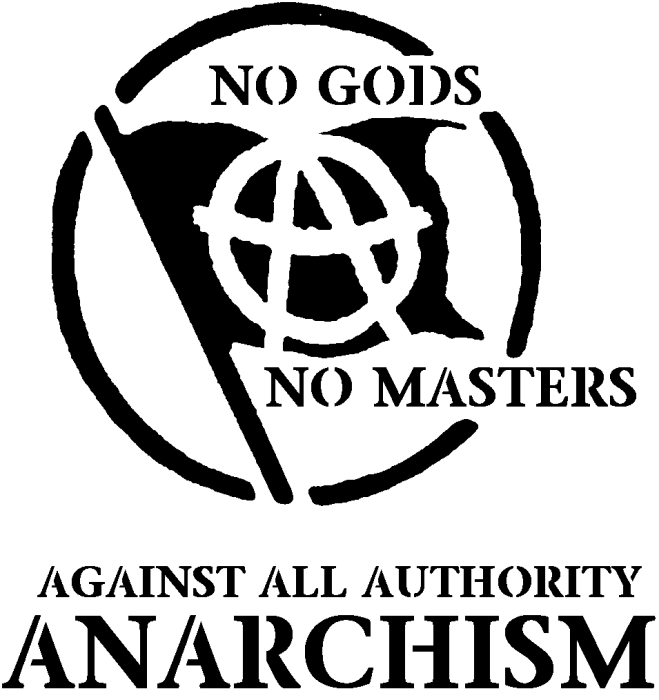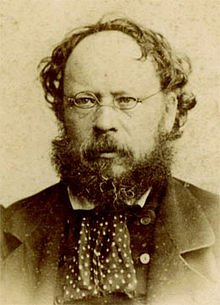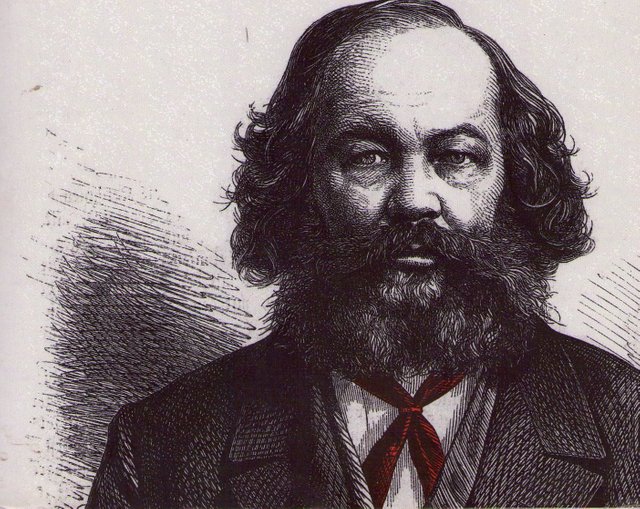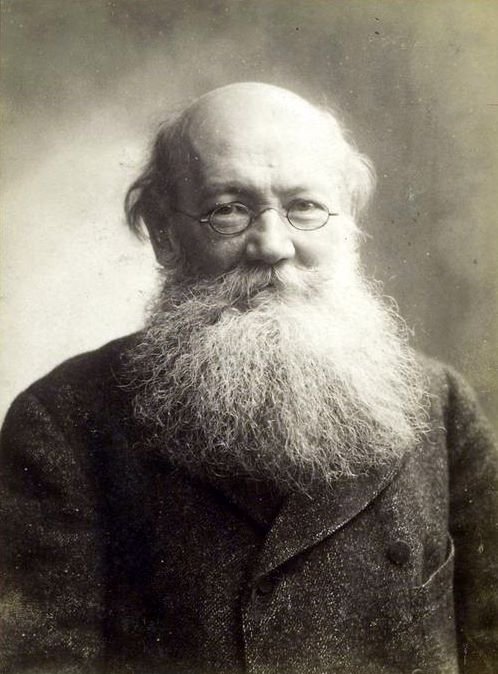
I. Proudhon and value-Labor Theory

It is valuable to note that the first anarchist thinkers were deeply influenced by classical economist David Ricardo and also that virtually all of them departed from moral principles to support their theories. Why? Well, the reason is simple: if the Ricardian economy (the most influential at the time) is correct and it is appropriate to found a anarchism with moral principles, then all the mutual content and socialist propositions are unquestionably correct.
The mutualism was conceived by Proudhon as a free market system based on an axiom called "cost principle", i.e., the amount of work objectively incorporated in the goods. The principle of cost is deducted from a value of theory, which indicated that the value of the property was determined effectively by the amount of effort involved in the production process. This phenomenon, Proudhon drew a moral principle which stated that:
"The worker retains, even after receiving their wages, a natural right of ownership over the thing he produced. [...] The work of the workers has created a value, then this value is the property of these. "
Most pre-Marxist anarchists agree on this point. Indeed, this theory, although it was formulated independently by Proudhon, was being published mainly in England by so-called "Ricardian socialists", among which we can mention Thomas Hodgskin, William Thompson, John Gray and John Bray, who draw the same conclusions of Ricardo's theory of value. This group of English writers are dedicated to using the work of Smith and (above all) Ricardo theoretical basis for the protection of workers against what they considered the abuse of capital. None of them was fundamentally wrong, by the Ricardian economics.
Well, as we know, David Ricardo and Adam Smith were wrong and replacing their value theory with the correct theory of Mengerian value, along with the Austrian temporal considerations of Bawerk - the theory of Ricardian capital also had the problem of being static in time - the exploitation of labor theories take a new facet and the final modeling of the classic anarchist system becomes the Rothbardian anarcho-capitalism, the modern libertarianism.
This is essentially the passage of classic libertarianism to the modern: it is right to found anarchism from moral theories, but the Ricardian assumptions would need to give way to a more sophisticated economic theory, dynamic and that takes into account human subjectivity.
II. Bakunin and the Free Market

This is the second part of the series of lessons that the history of anarchism can teach austro-libertarians. The first part can pass a wrong idea who is totally secular in the matter, that historically anarcho-capitalism was a natural historical development of the first anarchist wave - the Ricardian mutualists. But this is false, and although theoretically makes sense to think so, because, in effect, the introduction of the Austrian time subjectivism and the consequent rejection of the Ricardian theory of value naturally leads us to a proto Rothbardian anarchocapitalism, the fact is that unfortunately came a collectivist cancer in the anarchic thought in the last decades of the century. XIX.
"Oh i already know: you refer to Mikhail Bakunin" - perhaps this is the first thought to come to the reader's mind. My answer is "no," and I will defend it here, then expose that which in my historical interpretation brought fundamentalism collectivist anarchism.
Bakunin, although having supported at various times Marxist political activism - curiosity: the first Russian translation of "Das Kapital" was made by him - was a moral basis and essentially Proudhon policy. The fact is that the real differences between Bakunin and Proudhon mainly arise on philosophical grounds. The Russian, who adopts the materialist philosophy and dialectics of Marx, considered wrong posture by Proudhon , which had inherited the most idealistic view of Hegel. But in political philosophy, he was practically a free-market defender. I will try to briefly defend this point, giving as justification, the controversal affirmation that the free market is a condition for communism - remember that the Ricardian anarchists pre-Marx and Bakunin were called communists.
Some of these economic ideas anarchists may surprise many libertarians today, since it is a facet of Proudhon and Bakunin almost forgotten. Proudhon, as noted in the first part, manifested itself more closely with some liberal principles than some kind of free communism - although in his time "libertarian" communism wasn’t systematically formulated. This is even more evident if we look on his idea of federation, as a kind of political organization based on free contract - classical liberal concept - and not only as a geographical and economic organization tool. And should not therefore be surprised that he quotes among its main "masters" Adam Smith.
Mikhail Bakunin was one of its main intellectual successors, and indeed the Russian shared some economic principles of Proudhon more than with Marx. The Bakunin system is essentially philosophical and political, and not enjoying a serious training on social economy - something that Marx and Engels always insisted highlight - despite adopting much of Proudhonian theories. The Bakunin tribute to the French is huge:
"But then came Proudhon: the son of a peasant, and, his works and instinct, a hundred times more revolutionary than all doctrinaire and bourgeois Socialists, he equipped himself with a point of view, as ruthless as it was profound and penetrating, in order to destroy all their systems. Opposing liberty to authority, he boldly proclaimed himself an Anarchist by way of setting forth his ideas in contradistinction to those of the State Socialists, and, in the face of their deism or pantheism, he had the courage simply to declare himself an atheist, or rather a positivist, like Auguste Comte.
Proudhon's Socialism, -- based upon individual and collective freedom and upon the spontaneous actions of free associations, and obeying no other laws but the general laws of the social economy, those that alreagy had been discovered or would be discovered in the future; a Socialism functioning outside of any governmental regulation and all State protection, and subordinating politics to the economic, intellectual, and moral interests of society -- that kind of Socialism was bound in the course of time to arrive at Federalism."
Bakunin even recognizes that "The freedom of industry and of commerce is certainly a great thing, and one of the essential foundations of the future international alliance of all the peoples of the world. As we love freedom, all types of freedom, we should equally love this." It is also interesting to note that these individualistic traits (and atheist) are due to the influence of the great Max Stirner. Indeed, it is something that Engels was right, that Bakunin's anarchism is a mixture of elements and Proudhonists Stirnerites combined with something of historical materialism.
Stirner, influenced by Hegelian idealism, which in each historical period reigned a distinguished "spirit" - in more materialistic terms, a "dominant ideology" - that required the total individual sacrifice to feed and expand, was it "God," the "State", the "Nation", the "race", etc. Opposed to this, Stirner presented his idea of the One, the individualistic human and selfish, who refuses to sacrifice self-interest for the interest of a dominant spirit, and his vision of selfish association and a free contracts society is based totally on it. Bakunin does not reach such a degree of individualism but it is clear that it takes key elements of Stirner's philosophy in his thinking. As an example, Bakunin handle Stirner evaluation that makes the individual against the great "spirits" that try to devour you, as statism and nationalism. To these he write about the importance of individual freedom, criticizing the dominant ideologies that require an absolute sacrifice of man in favor of a greater cause, either the state glory or the nation's glory. The work God and the State (1882) is a lucid and energetic representation of this design.
In the next part, we talk about the great authoritarian developments within the anarchistic thought. For now, I'll just leave a tip: Peter Kropotkin. It will be interesting from the point of view of the anarchist movement as a whole as will become clear disagreements within the movement, especially in regard to one of the most fundamental concerns of libertarians: the organization of a stateless society.
III. Kropotkin and the deviation to collectivism

Finally, here is the third and final part of the post about some considerations of the history of anarchism. In the first part, I commented on some free-market pro features of the first anarchist wave and made analogies between Proudhon and modern austro-libertarianism pointing out the fundamental difference between them: the question of value. In the second, I defended the thesis that Bakunin was not so much as collectivism as how he is generally considered and had several liberal and individualistic influences as Stirner himself. There was a fundamental break from Proudhon to Bakunin, except in the philosophical field. In this final part I will bring Kropotkin to debate, to show why his thinking distorted anarchism into a collectivist cancer and explain some bullshit movement.
Kropotkin represented the total breakup of anarchism with the liberal tradition, including the freedom of contracts and made harsh attacks on private property - even in its most general sense, also including the appropriation by the employee, the ruits of their fair labor. However, he offered no explicit alternative. Kropotkin simply assumes that everyone is entitled to satisfy their most basic needs and, therefore, divide the role of each individual in the production and remunerate according to their productivity is an absurd. The only thing, in fact, the only thing that Kropotkin does is to oppose the natural law that anarchists had adopted at that time, based on the theory of labor value, for another based on the needs and well-being of all. But the naturalistic fallacy is the same in both conceptions, so that the Russian prince could not overcome in any way the mutualist or Bakuninist system. And the problems to estimate the work of each would be as difficult to solve as the needs of each individual.
In fact, anarchism of Kropotkin intended to be scientific, but was based even more on ethical and moral principles. This is the great conflict in their work. The problem of Kropotkin, and which may allow us to put in doubt the quality of "anarchist", if one insists on this interpretation, it is that it requires a single social organization, a unique organization of production and consumption, a single moral and cooperative that must be extended to all members of society. It is not clear how you could get similar social cohesion so that all individuals follow these principles. From there arises a great mess within the anarchist movement. How to organize to get that all individuals respect a single standard and follow a unique way of life? There are means of achieving such cohesion without a coercive apparatus requiring them to do so as the state? Proudhon, Bakunin, Malatesta and Tucker more or less solved this problem defending the freedom of association of all to join according to their individual interests in the social organization that wanted - say more or less because they also required certain rules and principles that everyone should follow to live in society, so that the problem does not lay completely solved. This was only possible because of the liberal remnants of his thoughts, more precisely, the right to freedom of contract. But Kropotkin takes a unique and ideal society, communist, where all are organized "spontaneously" according to its principles and therefore it is difficult to find in his work any reference to the existence of dissidents who seek to organize alternative forms.
Moreover, Kropotkin argues that progress and development that humanity has achieved as a species are due in large part to solidarity instincts and mutual support. Humanity would not have gotten where it arrived if the interests and individual well-being did not coincide with social interests, his anarcho-communism would be based more on a kind of utilitarianism than natural law. According to Kropotkin,
"In general, the moralists who raised their systems based on an alleged opposition between egoism and altruism feelings, erred path. If this opposition existed in fact, if the good of the individual is actually opposite side of society, the human species would not exist; no animal could have reached its current development. "
But it is not clear then how are possible selfish feelings and behaviors that are contrary to the interests of others. We can only say that the individual interests may not coincide with the social and which are not in themselves contradictory. This leads us to a situation of a joint communist morality to a morality based on freedom of association. It was no accident that this universal principle of Kropotkin subsequently resulted in a dogmatic anarchism, which saw all individual conduct that was not supportive and cooperative, although it did not involve coercion or violence against others, not only as anti-anarchist, but as unnatural. This misrepresentation would considering communism as the only viable, libertarian and human system, and, before this, the flirtation with the Communists Marxists would be inevitable.
The great achievement of Murray Rothbard was to rescue the individualist principles and put them as moral pillars in your system, thus reversing the collectivist path initiated by Kropotkin. In addition to the contractual freedom, Rothbard erected a purely rationalist, minimalist ethics, which would be common to all human beings and therefore covers all anarchists systems. In a way, all the old systems had anarchistic ethics of nonaggression as presupposed, but always with something else. The austro-libertarianism allows full freedom of association (and disassociation), provided that the ownership of land is fair (acquired by first use or contracts from it), and thus overcome all the problems with the issue of the organization, which so bedeviled anarchists of the nineteenth century.
Nicely written. My only quibble would be this; Anarchy literally just means "without rulers" and so it doesn't conflict with voluntary/consensual authority. When I go to the doctor, I submit to him as an authority on the subject of medicine and this is perfectly compatible with anarchism because the doctor isn't a ruler. Consent is key ;)
Downvoting a post can decrease pending rewards and make it less visible. Common reasons:
Submit
The shift from the dogma that permeates the core of the society to the independent thought movement that anarchism represents, this is very interesting
, its the 21st century, why not try a radically different approach to doing things and see what manifests as a result of that fundamental shift in thinking.
Downvoting a post can decrease pending rewards and make it less visible. Common reasons:
Submit
A fourth observation, if I may: Paul Lafargue went almost forgotten. His introduction of "appetite" as a factor in economics is the key to understanding sustainable markets.
Downvoting a post can decrease pending rewards and make it less visible. Common reasons:
Submit